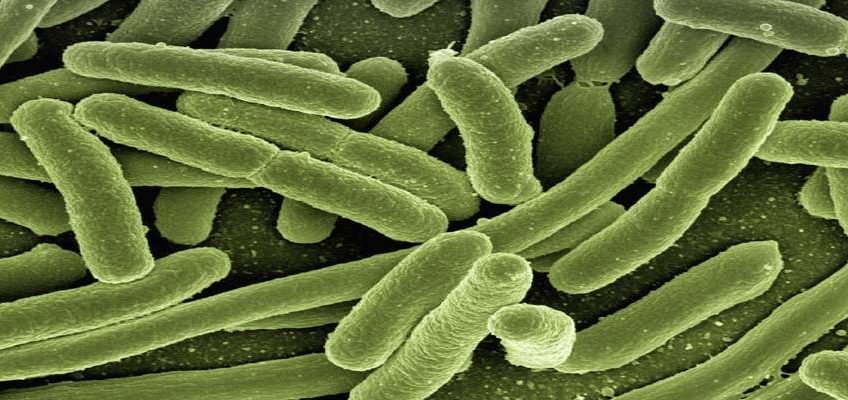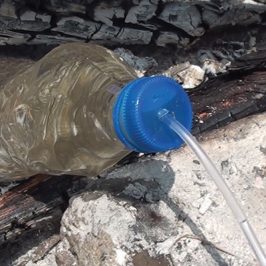Water is life. On average, and depending on the environment and terrain, a healthy adult cannot survive for more than three days without ingesting water. The body will dehydrate and that will ultimately lead to death. That does not mean that one can go ahead and drink from the first water source one encounters in the wilderness. There are a lot of waterborne diseases that can not only make you very sick, but can make you so sick that you can die by drinking contaminated water.
Remember, water does save your life, but water can also kill.
Below is a list of some of the waterborne diseases that can make you sick. This list is by no means exhaustive or comprehensive, but gives you some of the diseases that you might contract drinking contaminated water.
BACTERIAL INFECTIONS
DISEASE
SOURCE
GENERAL SYMPTOMS
Botulism
Bacteria can enter an open wound from contaminated water sources. Can enter the gastrointestinal tract through consumption of contaminated drinking water or (more commonly) food.
Dry mouth, blurred and/or double vision, difficulty swallowing, muscle weakness, difficulty breathing, slurred speech, vomiting and sometimes diarrhea. Death is usually caused by respiratory failure.
Campylobacteriosis
Drinking water contaminated with feces.
Dysentery like symptoms along with a high fever.
Cholera
Contaminated drinking water.
Very watery diarrhea, nausea, cramps, nosebleed, rapid pulse, vomiting, and hypovolemic shock (in severe cases), at which point death can occur in 12–18 hours.
E coli
Contaminated drinking water.
Mostly diarrhea. Can cause death in immunocompromised individuals, the very young, and the elderly due to dehydration from prolonged illness.
M marinum
Naturally occurs in water, most cases from exposure in swimming pools or more frequently aquariums; rare infection since it mostly infects immunocompromised individuals.
Lesions (painless or painful) typically located on the elbows, knees and feet (from swimming pools) or lesions on the hands (aquariums).
Dysentery
Contaminated drinking water.
Frequent passage of feces with blood and/or mucus and in some cases vomiting of blood.
Legionellosis
Contaminated drinking water.
Pontiac fever produces milder symptoms resembling acute influenza without pneumonia. Legionnaires' disease has severe symptoms such as fever, chills, pneumonia (with cough that sometimes produces sputum), ataxia, anorexia, muscle aches, malaise and occasionally diarrhea and vomiting.
Leptospirosis
Water contaminated by the animal urine carrying the bacteria.
Begins with flu-like symptoms then resolves. The second phase then occurs involving meningitis, liver damage (causes jaundice), and renal failure.
Otitis Externa
Swimming in water contaminated by the responsible pathogens.
Ear canal swells, causing pain and tenderness to the touch.
Salmonellosis
Drinking water contaminated with the bacteria. More common as a food borne illness.
Symptoms include diarrhea, fever, vomiting, and abdominal cramps.
Typhoid fever
Ingestion of water contaminated with feces of an infected person.
Characterised by sustained fever up to 40°C (104°F), profuse sweating; diarrhea may occur. Symptoms progress to delirium, and the spleen and liver enlarge if untreated. In this case it can last up to four weeks and cause death. Some people with typhoid fever develop a rash called "rose spots", small red spots on the abdomen and chest.
Vibrio Illness
Can enter wounds from contaminated water. Also acquired by drinking contaminated water or eating undercooked oysters.
Abdominal tenderness, agitation, bloody stool, chills, confusion, difficulty paying attention, delirium, fluctuating mood, hallucination, nosebleed, severe fatigue, slow, sluggish, lethargic feeling, weakness.
PROTOZOAL INFECTIONS
DISEASE
SOURCE
GENERAL SYMPTOMS
Amoebiasis
Sewage, non-treated drinking water, flies in water supply.
Abdominal discomfort, fatigue, weight loss, diarrhea, bloating, fever.
Cryptosporidiosis
Collects on water filters and membranes that cannot be disinfected, animal manure, seasonal runoff of water.
Flu-like symptoms, watery diarrhea, loss of appetite, substantial loss of weight, bloating, increased gas, nausea.
Cyclosporiasis
Sewage, non-treated drinking water.
Cramps, nausea, vomiting, muscle aches, fever and fatigue.
Giardiasis
Untreated water, poor disinfection, broken or leaky pipes, groundwater contamination.
Diarrhea, abdominal discomfort, bloating and flatulence.
Microsporidiosis
Detected in groundwater.
Diarrhea and wasting in immunocompromised individuals.
VIRAL INFECTIONS
DISEASE
SOURCE
GENERAL SYMPTOMS
SARS (Severe Acute Respiratory Syndrome)
Manifests itself in improperly treated water.
Fever, myalgia, lethargy, gastrointestinal symptoms, cough and sore throat.
Hepatitis A
Can manifest itself in water (and food).
Fatigue, fever, abdominal pain, nausea, diarrhea, weight loss, itching, jaundice and depression.
Poliomyelitis
Enters water through the feces of infected individuals.
90-95% of patients show no symptoms, 4-8% have minor symptoms (comparatively) with delirium, headache, fever, and occasional seizures and spastic paralysis, 1% have symptoms of non-paralytic aseptic meningitis. The rest have serious symptoms resulting in paralysis or death.
Polyomavirus infection
Very widespread, can manifest itself in water, ~80% of the population has antibodies to Polyomavirus.
BK virus produces a mild respiratory infection and can infect the kidneys of immunosuppressed transplant patients. JC virus infects the respiratory system, kidneys or can cause progressive multifocal leukoencephalopathy in the brain (which is fatal).
PARASITIC INFECTIONS
DISEASE
SOURCE
GENERAL SYMPTOMS
Schistosomiasis
Fresh water contaminated with certain types of snails that carry schistosomes.
Blood in urine, rash or itchy skin, fever, chills, cough and muscle aches.
Dracunculiasis
Stagnant water containing larvae.
Allergic reaction, urticaria rash, nausea, vomiting, diarrhea, asthmatic attack.
Taeniasis
Drinking water contaminated with eggs.
Intestinal disturbances, neurologic manifestations, loss of weight, cysticercosis.
Fasciolopsiasis
Drinking water contaminated with encysted metacercaria.
GIT disturbance, diarrhea, liver enlargement, cholangitis, cholecystitis, obstructive jaundice.
Hymenolepiasis
Drinking water contaminated with eggs.
Abdominal pain, severe weight loss, itching around the anus, nervous manifestation.
Echinococcosis
Drinking water contaminated with feces (usually canid) containing eggs.
Liver enlargement, hydatid cysts press on bile duct and blood vessels; if cysts rupture they can cause anaphylactic shock.
Coenurosis
Contaminated drinking water with eggs.
increases intracranial tension.
Ascariasis
Drinking water contaminated with feces (usually canid) containing eggs.
Mostly, disease is asymptomatic or accompanied by inflammation, fever, and diarrhea. Severe cases involve Löffler's syndrome in lungs, nausea, vomiting, malnutrition, and underdevelopment.
Enterobiasis
Drinking water contaminated with eggs.
Peri-anal itch, nervous irritability, hyperactivity and insomnia.
Now you know a host of waterborne diseases that can put you down pretty badly. Frankly, I do not know the names, sources or the symptoms of most of these illnesses. What I know is that I should treat all water as contaminated and disinfect or purify it for drinking.
Rule #1 to 10: Treat all water as contaminated even though it looks fresh, clean and inviting.
By the way, this article has been adapted from information gathered from https://en.wikipedia.org/wiki/Waterborne_diseases.










Leave a Reply
You must be logged in to post a comment.